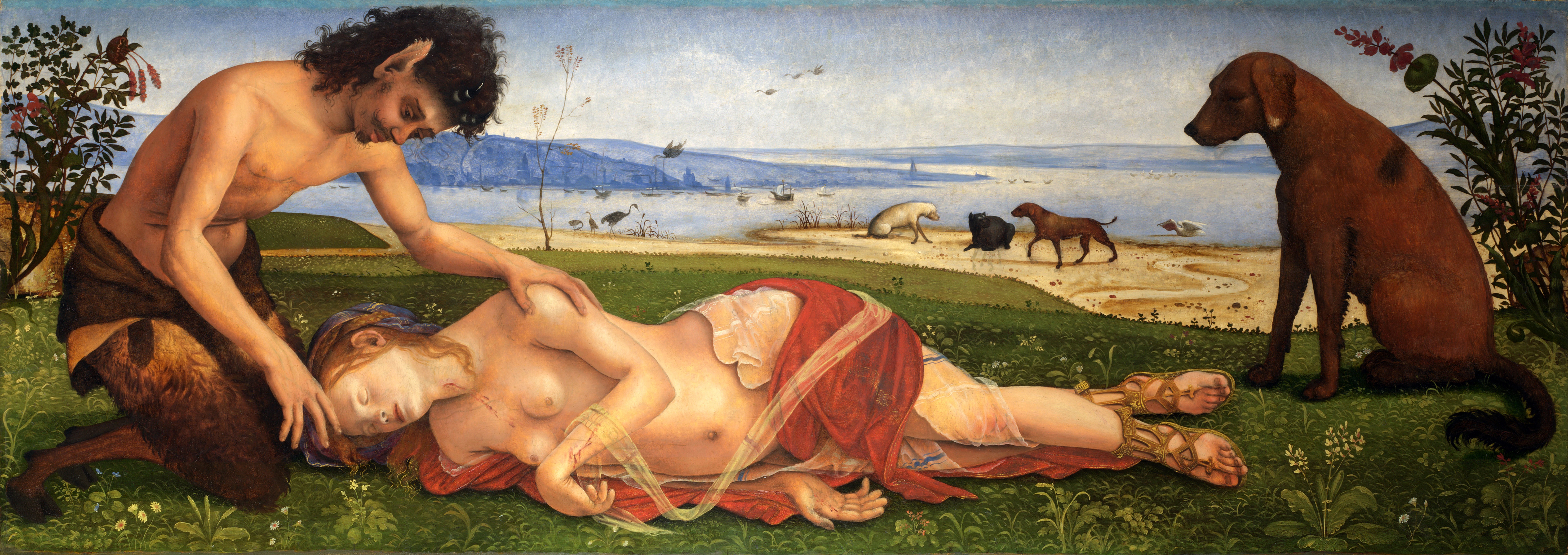Laelaps (mythology) on:
[Wikipedia]
[Google]
[Amazon]
Laelaps ( grc-gre, Λαῖλαψ, ''
 In one version of Laelaps' origin story, it was a gift from
In one version of Laelaps' origin story, it was a gift from
Online version at the Perseus Digital Library.Greek text available from the same website
{{Greek-myth-stub Deeds of Zeus Characters in Greek mythology Metamorphoses into inanimate objects in Greek mythology
gen
Gen may refer to:
* ''Gen'' (film), 2006 Turkish horror film directed by Togan Gökbakar
* Gen (Street Fighter), a video game character from the ''Street Fighter'' series
* Gen Fu, a video game character from the ''Dead or Alive'' series
* Gen l ...
''.: means "hurricane") (Lelaps, Lalaps, Lailaps) was a Greek
Greek may refer to:
Greece
Anything of, from, or related to Greece, a country in Southern Europe:
*Greeks, an ethnic group.
*Greek language, a branch of the Indo-European language family.
**Proto-Greek language, the assumed last common ancestor ...
mythological dog that never failed to catch what it was hunting.
Mythology
 In one version of Laelaps' origin story, it was a gift from
In one version of Laelaps' origin story, it was a gift from Zeus
Zeus or , , ; grc, Δῐός, ''Diós'', label= genitive Boeotian Aeolic and Laconian grc-dor, Δεύς, Deús ; grc, Δέος, ''Déos'', label= genitive el, Δίας, ''Días'' () is the sky and thunder god in ancient Greek relig ...
to Europa
Europa may refer to:
Places
* Europe
* Europa (Roman province), a province within the Diocese of Thrace
* Europa (Seville Metro), Seville, Spain; a station on the Seville Metro
* Europa City, Paris, France; a planned development
* Europa Clif ...
. The hound was passed down to King Minos
In Greek mythology, Minos (; grc-gre, Μίνως, ) was a King of Crete, son of Zeus and Europa. Every nine years, he made King Aegeus pick seven young boys and seven young girls to be sent to Daedalus's creation, the labyrinth, to be eaten ...
, who gave it as a reward to the Athenian princess Procris
In Greek mythology, Procris ( grc, Πρόκρις, ''gen''.: Πρόκριδος) was an Athenian princess as the third daughter of Erechtheus, king of Athens and his wife, Praxithea, daughter of Phrasimus and Diogeneia. Homer mentions her in ...
. In another version of her story, she received the animal as a gift from the goddess Artemis
In ancient Greek mythology and religion, Artemis (; grc-gre, Ἄρτεμις) is the goddess of the hunt, the wilderness, wild animals, nature, vegetation, childbirth, care of children, and chastity. She was heavily identified with ...
.
Procris' husband Cephalus Cephalus (; Ancient Greek: Κέφαλος ''Kephalos'' means "head") is a name used both for the hero-figure in Greek mythology and carried as a theophoric name by historical persons.
''Mythological''
* Cephalus, son of Hermes and Herse.
* Ceph ...
decided to use the hound to hunt the Teumessian fox In Greek mythology, the Teumessian fox, or Cadmean vixen, was a gigantic fox that was destined never to be caught. (''Teumēs(s)íā alôpēx''), ''gen''.: Τευμησίας ἀλώπεκος, also known as ἀλώπηξ τῆς Τευμησσοῦ ...
, a fox that could never be caught. This was a paradox
A paradox is a logically self-contradictory statement or a statement that runs contrary to one's expectation. It is a statement that, despite apparently valid reasoning from true premises, leads to a seemingly self-contradictory or a logically u ...
: a dog that always caught its prey versus a fox that could never be caught. The chase went on until Zeus, perplexed by their contradictory fates, turned both to stone and cast them into the stars as the constellations Canis Major
Canis Major is a constellation in the southern celestial hemisphere. In the second century, it was included in Ptolemy's 48 constellations, and is counted among the 88 modern constellations. Its name is Latin for "greater dog" in contrast ...
(Laelaps) and Canis Minor
Canis Minor is a small constellation in the northern celestial hemisphere. In the second century, it was included as an asterism, or pattern, of two stars in Ptolemy's 48 constellations, and it is counted among the 88 modern constellations. ...
(the Teumessian fox).
Notes
Greek legendary creatures Mythological dogsReference
*Apollodorus
Apollodorus (Greek: Ἀπολλόδωρος ''Apollodoros'') was a popular name in ancient Greece. It is the masculine gender of a noun compounded from Apollo, the deity, and doron, "gift"; that is, "Gift of Apollo." It may refer to:
:''Note: A f ...
, ''The Library'' with an English Translation by Sir James George Frazer, F.B.A., F.R.S. in 2 Volumes, Cambridge, MA, Harvard University Press; London, William Heinemann Ltd. 1921. ISBN 0-674-99135-4Online version at the Perseus Digital Library.
{{Greek-myth-stub Deeds of Zeus Characters in Greek mythology Metamorphoses into inanimate objects in Greek mythology